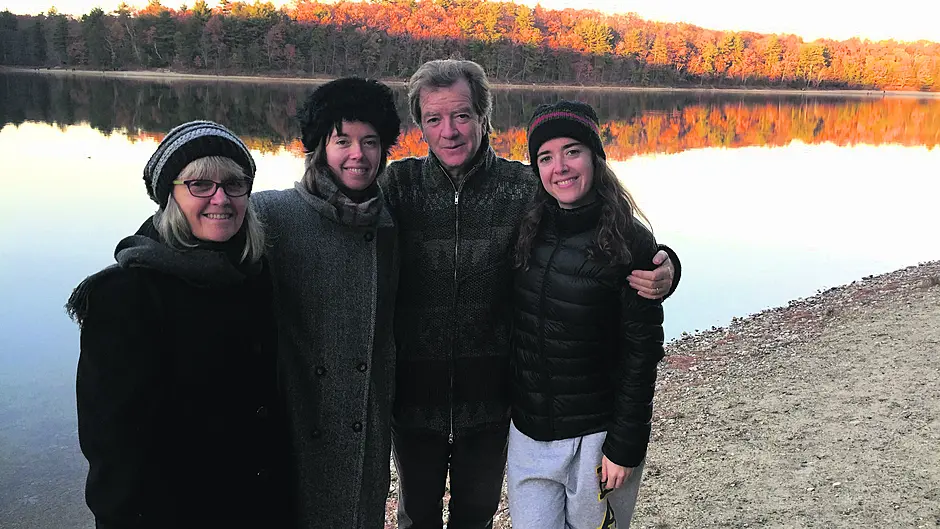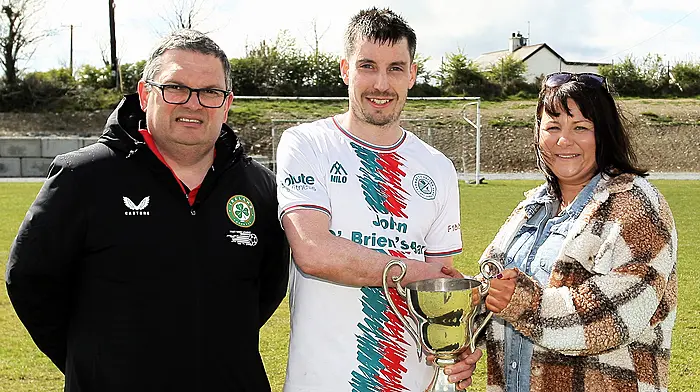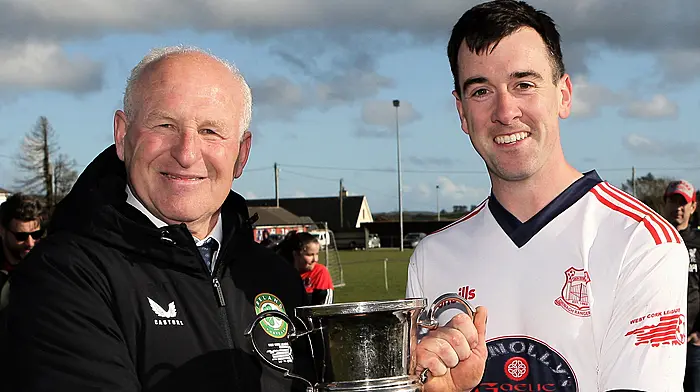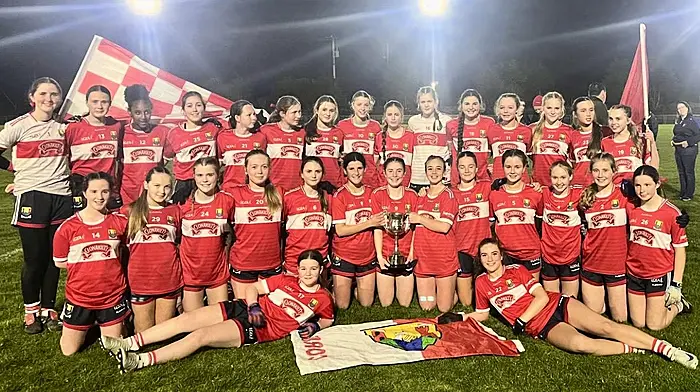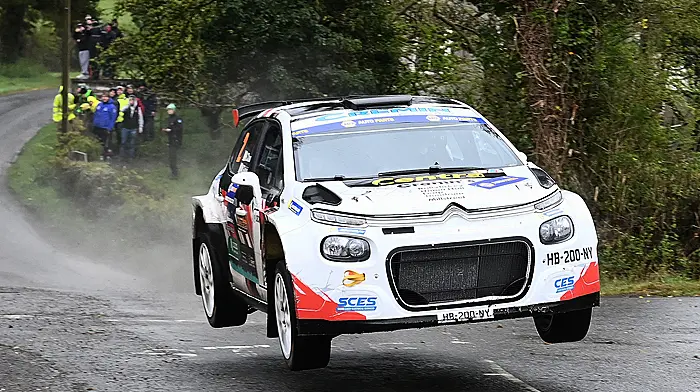A DECADE of listening, recording, transcribing and translating conversations he heard around him in West Cork helped shape Richard Kearney’s new novel Salvage which begins its extraordinary story on Rabbit Island.
The eminent Irish philosopher has lived in Union Hall for several months of the year since 1980, so it’s not surprising it’s where he chose to set much of his third novel.
Originally from Cork city, his great, great grandfather was from Manch near Dunmanway; and his grandfather, JJ Kearney, started his career as a doctor in Rosscarbery before moving to the city.
‘We’ve holidayed in West Cork as a family since we were children. I spent 21 years teaching philosophy in UCD and moved to Boston in 2000 which is when my wife and I got our house in Squince Harbour, opposite Rabbit Island. I absolutely love it there.
‘The island was actually called Oileán Bhríde and it was abandoned when the last of the islanders moved to the mainland in the 1950s.
It was renamed in the ordnance survey map in the mid 19th century, although some of the older people still refer to it as Biddy’s Island,’ said Richard who holds the Seelig Chair of Philosophy at Boston College.
Salvage is set in 1939 and young Maeve O’Sullivan and her family are among the last inhabitants of Oileán Bhríde. The seeds for the book were sown over 20 years ago, after an event Richard spoke at in a New York university.
‘A young man came up to me afterwards and it turned out that his grandmother was from Union Hall, and was in fact she was the last woman to leave the island.
‘She had missed the Titanic by just two hours, and lived all her life in Brooklyn but it was her one regret that she didn’t go back to visit her father on the island. I got to speak to her but three months later she sadly died. I decided then that I’d love to tell her story,’ said Richard.
The title of the novel is meaningful on different levels.
Set in the second world war, at that time islanders lived in part off the salvage from the passing wreckages. But Richard points out it’s not just a nostalgic dive into a lost era, but is a chance to see what can be retrieved for the future.
‘It’s about salvaging Irish names and memories,’ he said, and the book includes a good smattering of Irish words, especially in the naming of plants and sea life.
A lot of this richness came from his chat with the last island resident. ‘But many of the names I deploy in the novel were taught to me by a wonderful man and recently passed neighbour James Neal who told me the names of all these local places that are being lost from memory. Including them in the book was a way of guarding them for the future,’ he said.
Healer Maeve, he says, has this special indigenous rapport with nature that survived until the people of the island left in the 1950s.
The novel is also trying to salvage some of the great riches of that tradition and bring them into the future.
He feels the younger generation have a great interest in ‘these spiritual and healing traditions, as a way of responding to our ecological crisis.’
‘It’s about recovering a way of life that’s almost gone, forthe future,’ said Richard who admits a sense of loss around not using Irish names.
‘I’ve lived in Boston for the last 23 years, and when you’re away you cherish the things you’ve lost.’
Richard has written many books on European philosophy, narrative imagination, and Irish culture, as well as a book of poetry.
When writing fiction it’s very different, he says, and he just lets his imagination ‘go on a holiday.’
‘This isn’t a philosophical book. It’s 90% a love story, yes there are other layers at work but all the words used are words that could only be spoken by 14/15 year old girl and inhabitant of an island that is now sadly abandoned.’
Married to French teacher and artist Anne, they’re parents to Simone and Sarah, a healer and artist respectively who live in New York and both did art work for Salvage. West Cork, is now home, Richard insists, and he says he’d love to retire here.
He knows Rabbit Island inside out, and regularly fishes from Squince Harbour.
In Salvage, Maeve’s father drowns in a boating accident, and in an unusual twist, Richard was writing these exact chapters when the Tit Bonhomme tragedy took place.
The vessel hit rocks in Glandore Bay on her way home to Union Hall in January 2012 and only one of the six crew survived.
Richard is already working on the sequel to Salvage and as part of the West Cork Literary Festival, he will be in conversation with journalist and broadcaster Flor MacCarthy at 3pm, on Friday, July 7th in Marino Church, Bantry. For tickets see westcorkmusic.ie
There will be also be a launch of Salvage followed by a reading and signing at the Union Hall Arts Centre, July 16th from 6pm.
The launch will be accompanied by an art exhibition of paintings and other art works on Rabbit Island/Oileán Bhríde by 10 Irish artists, including Anne, Simone and Sally Kearney.

